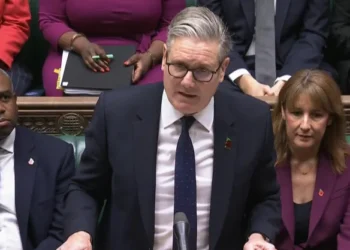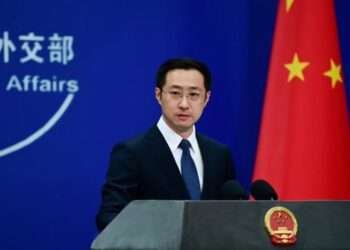The UK government has lost its attempt to keep the existence of a legal challenge against Apple over surveillance powers out of public view, in a decision that raises fresh concerns over transparency in national security matters.
The Investigatory Powers Tribunal (IPT), which reviews potential unlawful conduct by British intelligence services, rejected the Home Office’s efforts to prevent disclosure of the “bare details” of the case, stating that such secrecy was not justified in the public interest.
In a judgment delivered Monday, Lord Justice Singh, president of the IPT, and Mr Justice Johnson confirmed for the first time that the case involves a legal challenge by Apple. The tech giant is contesting the UK government’s ability to issue what are known as Technical Capability Notices (TCNs) under the Investigatory Powers Act — a law that gives authorities broad powers to compel tech firms to enable access to encrypted data.
The Home Office had argued that even confirming the existence of the case, let alone the parties involved, would be “prejudicial to national security”. But the tribunal did not agree.
According to sources, the Home Office issued Apple a TCN demanding that it provide government access to Apple’s Advanced Data Protection (ADP) feature — a service that encrypts personal data stored on its cloud servers, making it nearly impossible even for Apple to access.
Apple responded by pulling ADP from the UK market rather than complying. The company has long maintained that it “would never build a backdoor” into its products or services, fearing that weakening encryption would compromise the privacy of all users.

While the judges confirmed the legal challenge exists, they emphasized that “this judgment should not be taken as an indication that the media reporting is or is not accurate,” since neither Apple nor the Home Office have confirmed the specifics of the TCN or the contents of the notice.
Transparency Calls Grow Around Secret Proceedings
The press was not allowed into a closed hearing about the case held on March 14. The media requested that the tribunal publicly confirm who was involved and allow open proceedings, but both requests were denied.
The tribunal acknowledged that “some or all future hearings” could include public elements, possibly with reporting restrictions, but stated that it was too early in the process to make such determinations.
Under current law, recipients of a TCN are barred from acknowledging the order’s existence unless authorized by the home secretary. While the tribunal’s official stance is that proceedings should be closed only when “strictly necessary,” its rules also require that no information be disclosed if it would be “prejudicial to national security.”
Ross McKenzie, a data protection specialist at Addleshaw Goddard, said the ruling marked a shift toward openness but cautioned against expecting full transparency. “We may get a skeletal decision similar to what has been shared so far, which summarises the rationale without any meaningful detail,” McKenzie said.
A Home Office spokesperson declined to comment on the case directly, citing legal constraints, but defended the use of investigatory powers.
“Longstanding and targeted investigatory powers have saved lives, prevented incredibly serious terrorist plots against the UK, and put dangerous criminals behind bars.”
Home Office spokesperson
The department emphasized that such powers must continue to evolve in line with technological advances.
While the core details of Apple’s legal battle with the UK government remain undisclosed, the tribunal’s refusal to uphold total secrecy has opened a narrow window into one of the most contentious privacy disputes in the UK.
READ ALSO: Investor Interest Wanes as Government Falls Short of T-Bill Target Again























